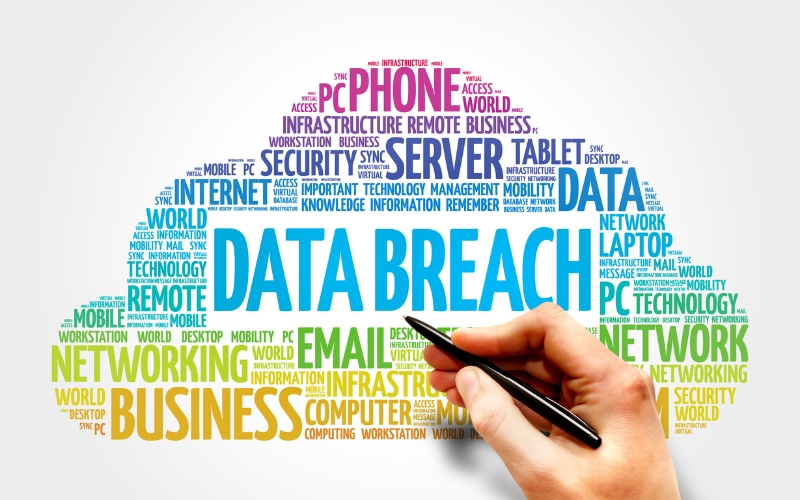
As digital marketing continues to expand its reach, the growing threat of cyber attacks is becoming a significant concern for marketers across the globe. With the rise in online interactions and data collection, cybercriminals are continuously finding new ways to exploit vulnerabilities in marketing systems. In such a scenario, cybersecurity for marketers is more important than ever before. As cyber threats evolve, it is crucial for marketers to protect both customer data and digital assets to ensure the success and integrity of their marketing efforts. Understanding and mitigating these risks is essential in maintaining consumer trust and safeguarding business operations.
The Growing Threat of Cyber Attacks in Digital Marketing

As digital marketing continues to evolve, the growing threat of cyber attacks in the marketing landscape has become an increasing concern. The digital age has provided marketers with a vast array of tools and platforms to reach potential customers, but it has also opened doors for malicious actors to exploit vulnerabilities. Cybersecurity for marketers has never been more critical as marketers face an unprecedented level of cyber threats that could have severe consequences on their operations.
One of the key risks marketers face is the targeting of sensitive customer data. With digital marketing campaigns often requiring the collection of personal information such as emails, addresses, and payment details, these data points are valuable assets for cybercriminals. A data breach could not only expose this sensitive information but also lead to identity theft or financial fraud. As a result, marketers must be vigilant in implementing strong cybersecurity protocols to protect customer data and prevent these types of cyber threats.
Another growing risk is the compromise of digital marketing platforms and tools. Many marketing efforts rely on third-party software, social media accounts, and email marketing services. These platforms, if inadequately secured, can become prime targets for hackers seeking to gain unauthorized access to sensitive business information or to distribute harmful content. Cybersecurity for marketers is essential to safeguard these platforms from being hijacked or used as a vector for malicious campaigns. Failing to protect these tools could lead to operational disruptions, loss of control over brand messaging, or reputational damage.
The consequences of a successful cyber attack extend far beyond the immediate impact of data loss. The long-term effects can include a loss of customer trust, which can be difficult to rebuild. Consumers are becoming increasingly aware of privacy and security concerns, and any breach could significantly damage a brand’s reputation. Marketers who neglect cybersecurity risk not only the financial impact of a cyber attack but also the erosion of brand loyalty and consumer confidence.
In this climate of rising cyber threats, cybersecurity for marketers is not just a technical necessity—it is a business imperative. Marketers must prioritize the security of their digital assets and data, adopting best practices to protect against these ever-evolving risks. By doing so, they can ensure their marketing campaigns are not only effective but also safe from the growing tide of cyber threats in the digital space.
The Impact of Data Breaches on Marketing Campaigns

Securing Customer Data: A Marketer’s Responsibility

Securing customer data is one of the most critical responsibilities for marketers in the digital age. With an ever-increasing reliance on digital marketing strategies, safeguarding personal and transactional data has become a top priority. Cybersecurity for marketers is not just a technical requirement—it’s an ethical obligation to ensure customer information remains secure and protected from malicious threats.
As marketers collect vast amounts of personal data through various channels, including emails, online forms, and e-commerce platforms, they become custodians of this sensitive information. Customer data, including names, addresses, payment details, and behavioral preferences, are valuable assets that need to be protected. If any of this data is compromised, the consequences can be severe—not only for the customer but for the brand as well. A breach of sensitive data can lead to identity theft, fraud, and financial loss for consumers, ultimately damaging their trust in the brand. This makes it critical for marketers to prioritize the protection of this data at every stage of the marketing process.
In addition to the immediate risks of fraud and reputational damage, mishandling customer data can lead to legal and regulatory consequences. Many regions have strict data privacy laws that require businesses to adhere to certain standards of data protection. For example, regulations like the General Data Protection Regulation (GDPR) in the EU and the California Consumer Privacy Act (CCPA) in the US impose heavy fines and penalties on companies that fail to comply with these laws. As such, cybersecurity for marketers isn’t just a matter of best practices—it’s a legal necessity to ensure compliance with privacy laws.
Marketers play a crucial role in maintaining robust security protocols within their organizations. Implementing strong password policies, encrypting sensitive data, and ensuring secure data storage are just a few of the steps marketers can take to protect customer information. They should also collaborate with IT teams to regularly monitor potential vulnerabilities and update security systems as needed to stay ahead of cyber threats.
Moreover, marketers must prioritize transparency with their customers about how their data will be used and safeguarded. Communicating data security practices clearly can help build trust and show that the brand is committed to protecting customer information. In this way, cybersecurity for marketers is not just about preventing breaches, but also about fostering lasting relationships based on trust and integrity.
Best Practices for Protecting Marketing Platforms and Tools

In the digital marketing landscape, marketers rely heavily on various tools and platforms to engage with customers, track performance, and manage campaigns. From email marketing systems to social media platforms and customer relationship management (CRM) tools, these digital assets are essential to a marketer’s daily operations. However, with the increasing number of cyber threats, cybersecurity for marketers must be a top priority to secure these marketing platforms and tools effectively.
One of the first steps in safeguarding marketing tools is using strong, unique passwords for every account. Passwords should not be reused across different platforms and should ideally include a mix of uppercase and lowercase letters, numbers, and symbols. Additionally, two-factor authentication (2FA) should be enabled wherever possible. This extra layer of protection ensures that even if a password is compromised, the account remains secure. Cybersecurity for marketers involves adopting these simple but effective practices to mitigate the risk of unauthorized access.
Another best practice is to regularly update and patch all software, including the marketing platforms, email systems, and plugins used by your team. Cybercriminals often exploit vulnerabilities in outdated software, so keeping everything up to date is essential. Marketers should set up automated updates for systems or work closely with IT teams to ensure regular security checks.
Social media accounts are often prime targets for hackers, as they provide direct access to a brand’s public-facing identity. Marketers should secure their social media accounts by using long, complex passwords and enabling two-factor authentication. Furthermore, it’s essential to limit access to these accounts, giving only trusted team members the ability to post, share, or manage content. It’s also recommended to monitor account activity regularly for any unusual behavior.
For email marketing systems, cybersecurity for marketers involves encrypting sensitive data and securing email lists. When collecting personal information via email campaigns, ensure the data is stored securely and in compliance with privacy regulations. Marketers should also be cautious about phishing attempts, both on their end and on the customer side. Training the marketing team to recognize phishing attempts can help prevent these attacks from gaining access to sensitive marketing tools.
Lastly, marketers should regularly back up their data and ensure that security software, such as firewalls and anti-virus protection, is in place to defend against malware and cyberattacks. By following these best practices, marketers can significantly reduce the risk of cyber threats and protect the integrity of their marketing platforms and tools, allowing them to focus on driving successful campaigns.
Building Consumer Trust Through Cybersecurity

In today’s digital age, consumer trust is one of the most valuable assets a brand can possess. As data breaches and cyber threats become more common, consumers are increasingly concerned about the security of their personal information. For marketers, prioritizing cybersecurity is a vital step in building and maintaining that trust. Cybersecurity for marketers isn’t just about protecting sensitive data—it’s also about demonstrating to consumers that their privacy and security are top priorities.
When customers share their personal information with a brand, whether it’s for making a purchase or subscribing to a newsletter, they expect it to be handled with care. If a breach occurs, it not only compromises their data but also undermines their trust in the brand. In contrast, when marketers take proactive steps to secure customer data, it signals to consumers that the company values their privacy and is committed to safeguarding their information. This can significantly enhance consumer confidence, making customers more likely to engage with the brand and share their personal data willingly.
One of the key elements of building consumer trust through cybersecurity is transparency. Marketers who openly communicate their security practices and demonstrate how customer data is protected create an environment of openness. This transparency helps reassure customers that their information is in safe hands. Additionally, making customers aware of any data protection certifications or compliance with privacy regulations—such as GDPR or CCPA—can further strengthen their confidence in the brand’s security measures. Cybersecurity for marketers involves not only the technical aspects of securing data but also how those efforts are communicated to customers.
When consumers feel confident that their data is secure, they are more likely to develop long-term relationships with the brand. Trust encourages repeat purchases, positive reviews, and word-of-mouth referrals, all of which contribute to brand loyalty. On the other hand, if a customer experiences a breach or perceives a lack of cybersecurity efforts, the relationship may end, and the brand’s reputation can suffer. For marketers, this means that the investment in cybersecurity is not just an operational necessity but also a strategic one that directly impacts customer retention and growth.
Ultimately, cybersecurity for marketers is a cornerstone of building a trustworthy brand. By prioritizing data protection and ensuring a secure digital experience, marketers can foster loyalty, strengthen their brand reputation, and establish lasting customer relationships. In the increasingly competitive digital marketplace, cybersecurity is not just a technical concern—it is a trust-building tool that can set a brand apart from its competitors.
Conclusion:
As the digital marketing landscape continues to evolve, the importance of cybersecurity for marketers becomes even more critical. Marketers must stay ahead of emerging cyber threats to protect sensitive data and ensure the success of their campaigns. To learn more about the essential cybersecurity strategies marketers should adopt, check out this comprehensive guide on Cybersecurity for Marketers, which provides valuable insights into safeguarding digital assets and customer trust.
In conclusion, cybersecurity for marketers is no longer just an IT issue—it’s a fundamental aspect of modern marketing strategies. As digital threats continue to grow, securing sensitive data, protecting marketing platforms, and fostering consumer trust are all vital to the long-term success of any brand. Marketers must prioritize cybersecurity efforts to not only prevent data breaches but also to maintain the trust and loyalty of their customers. By investing in robust security practices, marketers can safeguard their operations, preserve their brand reputation, and create a secure digital environment for their customers.
For more details or to discuss your specific Digital Marketing requirements, visit our AI Scope Digital page.

